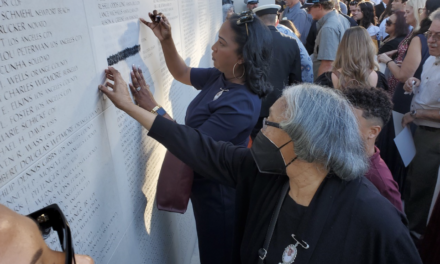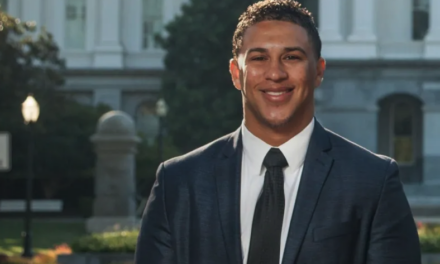LA City Council Members Continue Push for Ban on Cashless Businesses
In a press conference held on Tuesday morning outside City Hall, Councilwoman Heather Hutt urged the Los Angeles City Council to support the motion to ban businesses within the city limits that don’t accept cash as a form of payment.

By Austin Gage | Contributing Writer
In a press conference held on Tuesday morning outside City Hall, Councilwoman Heather Hutt urged the Los Angeles City Council to support the motion to ban businesses within the city limits that don’t accept cash as a form of payment.
Hutt introduced in August 2023, a motion that emphasizes the importance of ensuring every citizen has the opportunity to participate in the city’s economic development. Citing an FDIC study revealing that 44% of Black households and 41.5% of Hispanic households in California are underbanked or unbanked, Hutt stressed the ban’s positive economic potential for vulnerable communities.
“Banning cashless businesses is a crucial step in ensuring that every Angeleno has equal access to our economy and infrastructure,” said Hutt.
Since introducing the motion, Hutt has heard from community members that discussed how cashless businesses directly affect many people.
“I’ve spoken to people who have tried to buy a bottle of water and couldn’t because they only had cash,” Hutt said.
The cashless business ban does not eliminate cashless options; it ensures that businesses also accept cash.
Cashless processes in this sector have become more prominent due to the COVID-19 pandemic, as businesses aim to reduce physical contact between employees and customers. Additionally, businesses cite reasons such as lower labor costs, improved financial security against potential crimes, and quicker payment systems for their transition to largely cashless operations.
However, Hutt, joined by Councilmembers Eunisses Hernandez and Hugo Soto-Martinez, along with Community Coalition President Alberto Retana and Jenesse Center Director of Compliance Leslie Belt, highlighted the issue of tracking domestic violence victims through cashless payment methods as one that should not be overlooked.
“When survivors are forced to rely on digital transactions, they leave digital footprints and become easily traceable by their abusers who often control their bank accounts. Cash provides survivors with a lifeline, offering them the ability to discreetly assess resources, secure shelter, and cover basic necessities without being tracked,” said Belt.
In addition to the issue of domestic violence victim tracking, the press conference addressed overall economic inequity and residents’ access to basic goods and services. The ban aims to create a level economic playing field.
Examples were shared, including vulnerable communities lacking physical access to setting up bank accounts and anecdotes of family members not adapting to cashless payment methods.
Soto-Martinez shared a personal example regarding his father, underscoring the challenge cashless businesses pose to communities like those with immigrant and elderly populations.
“Speaking very openly, my dad does not have a credit card. He uses cash in every single transaction in his everyday life. And of course we have many folks who are living on the street who do not have access to banks and do not carry credit cards,” Soto-Martinez said regarding the real threat cashless businesses pose to Los Angeles communities.
Overall, the ban and broader motion were presented as protective measures against economic exclusion.
“Going cashless is a form of economic suppression and othering that tells Angelenos they do not belong. Banning cashless businesses is about protecting our economic freedom; it’s about inclusion,” said Retana.
The next steps for the motion include a scheduled review by the Trade, Travel, and Tourism committee in Summer 2024. If the motion is enacted, Los Angeles will become the fourth American city to ban cashless businesses, joining San Francisco, Philadelphia, and New York.













